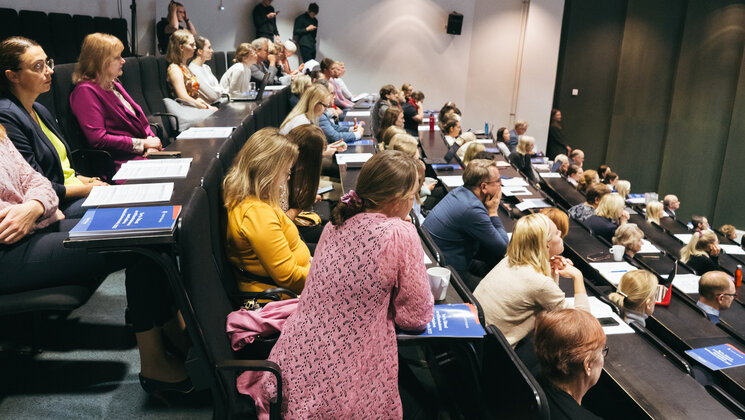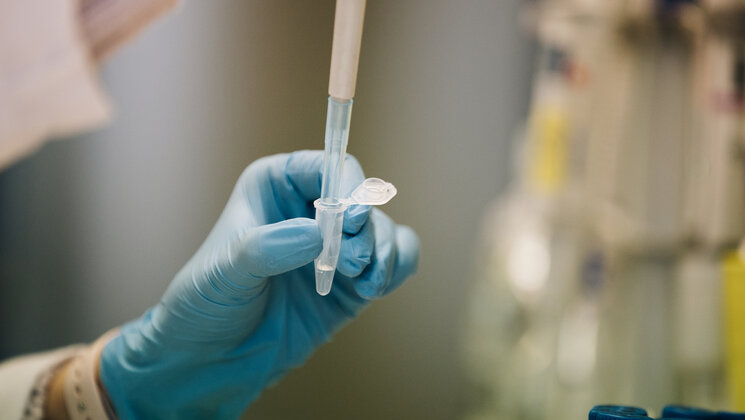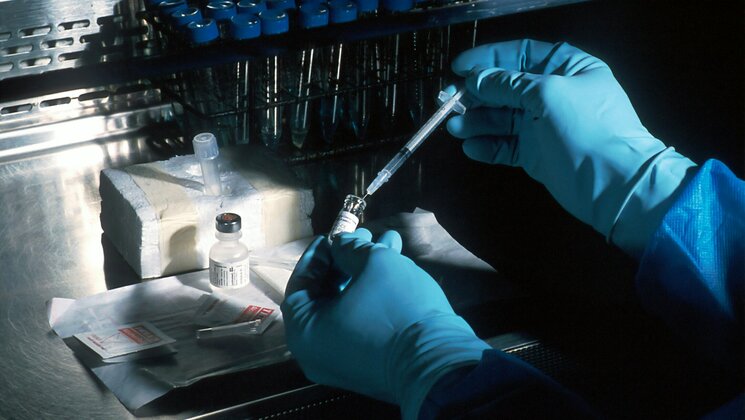-
Faculty of Arts and HumanitiesDean's Office, Faculty of Arts and HumanitiesJakobi 2, r 116-121 51005 Tartu linn, Tartu linn, Tartumaa EST0Institute of History and ArchaeologyJakobi 2 51005 Tartu linn, Tartu linn, Tartumaa EST0Institute of Estonian and General LinguisticsJakobi 2, IV korrus 51005 Tartu linn, Tartu linn, Tartumaa ESTInstitute of Philosophy and SemioticsJakobi 2, III korrus, ruumid 302-337 51005 Tartu linn, Tartu linn, Tartumaa EST0Institute of Cultural ResearchÜlikooli 16 51003 Tartu linn, Tartu linn, Tartumaa EST0Institute of Foreign Languages and CulturesLossi 3 51003 Tartu linn, Tartu linn, Tartumaa EST0School of Theology and Religious StudiesÜlikooli 18 50090 Tartu linn, Tartu linn, Tartumaa EST0Viljandi Culture AcademyPosti 1 71004 Viljandi linn, Viljandimaa EST0Professors emeritus, Faculty of Arts and Humanities0Associate Professors emeritus, Faculty of Arts and Humanities0Faculty of Social SciencesDean's Office, Faculty of Social SciencesLossi 36 51003 Tartu linn, Tartu linn, Tartumaa EST0Institute of EducationJakobi 5 51005 Tartu linn, Tartu linn, Tartumaa EST0Johan Skytte Institute of Political StudiesLossi 36, ruum 301 51003 Tartu linn, Tartu linn, Tartumaa EST0School of Economics and Business AdministrationNarva mnt 18 51009 Tartu linn, Tartu linn, Tartumaa EST0Institute of PsychologyNäituse 2 50409 Tartu linn, Tartu linn, Tartumaa EST0School of LawNäituse 20 - 324 50409 Tartu linn, Tartu linn, Tartumaa EST0Institute of Social StudiesLossi 36 51003 Tartu linn, Tartu linn, Tartumaa EST0Narva CollegeRaekoja plats 2 20307 Narva linn, Ida-Virumaa EST0Pärnu CollegeRingi 35 80012 Pärnu linn, Pärnu linn, Pärnumaa EST0Professors emeritus, Faculty of Social Sciences0associate Professors emeritus, Faculty of Social Sciences0Faculty of MedicineDean's Office, Faculty of MedicineRavila 19 50411 Tartu linn, Tartu linn, Tartumaa ESTInstitute of Biomedicine and Translational MedicineBiomeedikum, Ravila 19 50411 Tartu linn, Tartu linn, Tartumaa ESTInstitute of PharmacyNooruse 1 50411 Tartu linn, Tartu linn, Tartumaa ESTInstitute of DentistryL. Puusepa 1a 50406 Tartu linn, Tartu linn, Tartumaa ESTInstitute of Clinical MedicineL. Puusepa 8 50406 Tartu linn, Tartu linn, Tartumaa ESTInstitute of Family Medicine and Public HealthRavila 19 50411 Tartu linn, Tartu linn, Tartumaa ESTInstitute of Sport Sciences and PhysiotherapyUjula 4 51008 Tartu linn, Tartu linn, Tartumaa ESTprofessors emeritus, Faculty of Medicine0associate Professors emeritus, Faculty of Medicine0Faculty of Science and TechnologyDean's Office, Faculty of Science and TechnologyVanemuise 46 - 208 51003 Tartu linn, Tartu linn, Tartumaa ESTInstitute of Computer ScienceNarva mnt 18 51009 Tartu linn, Tartu linn, Tartumaa ESTInstitute of GenomicsRiia 23b/2 51010 Tartu linn, Tartu linn, Tartumaa ESTEstonian Marine Institute0Institute of PhysicsInstitute of ChemistryRavila 14a 50411 Tartu linn, Tartu linn, Tartumaa ESTInstitute of Mathematics and StatisticsNarva mnt 18 51009 Tartu linn, Tartu linn, Tartumaa EST0Institute of Molecular and Cell BiologyRiia 23, 23b - 134 51010 Tartu linn, Tartu linn, Tartumaa ESTTartu ObservatoryObservatooriumi 1 61602 Tõravere alevik, Nõo vald, Tartumaa EST0Institute of TechnologyNooruse 1 50411 Tartu linn, Tartu linn, Tartumaa ESTInstitute of Ecology and Earth SciencesJ. Liivi tn 2 50409 Tartu linn, Tartu linn, Tartumaa ESTprofessors emeritus, Faculty of Science and Technology0associate Professors emeritus, Faculty of Science and Technology0Area of Academic SecretaryHuman Resources OfficeÜlikooli 18, ruumid 302 ja 304 50090 Tartu linn, Tartu linn, Tartumaa EST0Area of Head of FinanceFinance Office0Area of Director of AdministrationInformation Technology Office0Administrative OfficeÜlikooli 17 (III korrus) 51005 Tartu linn, Tartu linn, Tartumaa EST0Estates Office0Marketing and Communication OfficeÜlikooli 18, ruumid 102, 104, 209, 210 50090 Tartu linn, Tartu linn, Tartumaa EST0Area of Vice Rector for DevelopmentCentre for Entrepreneurship and InnovationNarva mnt 18 51009 Tartu linn, Tartu linn, Tartumaa EST0University of Tartu Natural History Museum and Botanical GardenVanemuise 46 51003 Tartu linn, Tartu linn, Tartumaa EST0International Cooperation and Protocol Office0University of Tartu MuseumLossi 25 51003 Tartu linn, Tartu linn, Tartumaa EST0Area of RectorRector's Strategy OfficeInternal Audit OfficeArea of Vice Rector for Academic AffairsOffice of Academic AffairsUniversity of Tartu Youth AcademyUppsala 10 51003 Tartu linn, Tartu linn, Tartumaa ESTStudent Union OfficeÜlikooli 18b 51005 Tartu linn, Tartu linn, Tartumaa EST0Centre for Learning and TeachingArea of Vice Rector for ResearchUniversity of Tartu LibraryW. Struve 1 50091 Tartu linn, Tartu linn, Tartumaa ESTGrant Office
Research of the Department of Pathophysiology
Our current focus
- To describe novel pathways emerging from pathogenetic changes in energy metabolism and endoplamic reticulum stress.
- To discover genetic networks and molecular mechanisms related to pathogenesis of bone- and muscle diseases, including opsteoporosis, ostheoarthritis and sarcopenia and in development of heart failure.
- To characterize proteomic specificity of Wfs-1 deficient mice muscles in parallel with transcriptional and pathophysiological changes.
Grants
- State Education Development Agency (SEDA): Integrated model for personalized diabetic retinopathy screening and monitoring using risk-stratification and automated AI-based fundus image analysis (Professor Vallo Volke, MMVBS21381, 01.05.2021–30.04.2024)
- Particle Metrics GbmH: Staining study to – differentiate organelle originated EV´s from other nanoparticles – via f-NTA (Particle Metrix QUATT) Part II (Professor Alireza Fazeli, VMVBS23442, 01.09.2023–31.08.2024)
Integrated model for personalized diabetic retinopathy screening and monitoring using risk-stratification and automated AI-based fundus image analysis – PerDiRe
EEA-RESEARCH-60 Funded by EEA Grants
Implementation period 01.05.2021–30.04.2024
Funding 1 000 000 Euros
The aim of the project is to implement a new personalized diabetic retinopathy screening and monitoring program using artificial intelligence (AI) for future applications in the care of patients with diabetes.
Partners
Project is led by University of Latvia (Dr Jelizaveta Sokolovska)
Lithuanian University of Health Sciences Prof. Rasa Verkauskienė
University of Oslo Prof. Goran Petrovski
University of Tartu Prof. Vallo Volke
Work Packages

Financier

Current collaborations
In Estonia: National Institute of Chemical Physics and Biophysics; Traumathology and Orthopaedics Clinic of University of Tartu.
International: Hue University of Medicine and Pharmacy (Vietnam)
Biobanks
- samples of various human sceletal muscles, collected for sarcopenia studies within MYOAGE Project. Collected in collaboration with Traumathology and Orthopaedics Clinic, University of Tartu.
- Biological samples from 110 osteosarcoma patients.
Databaseses
The mass spectrometry proteomics data of wolframin-deficient mouse heart and skeletal muscles, deposited to the ProteomeXchange Consortium via the PRIDE partner repository with the dataset identifierPXD011019 https://www.ebi.ac.uk/pride/archive/projects/PXD011019
The five most important publications in the last five years
- Pääsuke, Reedik; Eimre, Margus; Piirsoo, Andres; Peet, Nadežda; Laada, Liidia; Kadaja, Lumme; Roosimaa, Mart; Pääsuke, Mati; Märtson, Aare; Seppet, Enn; Paju, Kalju (2016). Proliferation of human primary myoblasts is associated with altered energy metabolism in dependence of ageing in vivo and in vitro. Oxidative Medicine and Cellular Longevity, Article ID 8296150, 10 pages−x.10.1155/2016/8296150.
- Ivask, Marilin; Pajusalu, Sander; Reimann, Ene; Kõks, Sulev (2018). Hippocampus and Hypothalamus RNA-sequencing of WFS1-deficient Mice. Neuroscience, 374, 91−103.10.1016/j.neuroscience.2018.01.039.
- Lattekivi, Freddy; Koks, Sulev; Keermann, Maris; Reimann, Ene; Prans, Ele; Abram, Kristi; Silm, Helgi; Koks, Gea; Kingo, Kulli (2018). Transcriptional landscape of human endogenous retroviruses (HERVs) and other repetitive elements in psoriatic skin. Scientific Reports, 8, ARTN 4358.10.1038/s41598-018-22734-7.
- Eimre, Margus; Paju, Kalju; Peet, Nadežda; Kadaja, Lumme; Tarrend, Marian; Kasvandik, Sergo; Seppet, Joosep; Ivask, Marilin; Orlova, Ehte; Kõks, Sulev (2018). Increased Mitochondrial Protein Levels and Bioenergetics in the Musculus Rectus Femoris of Wfs1-Deficient Mice. Oxidative Medicine and Cellular Longevity, 1−12.10.1155/2018/3175313.
- Eimre, Margus; Kasvandik, Sergo; Ivask, Marilin; Kõks, Sulev (2018). Proteomic dataset of wolframin-deficient mouse heart and skeletal muscles. Data in Brief, 21, 616−619.10.1016/j.dib.2018.10.015.

Call for abstracts: scientific conference celebrating the anniversary of the Faculty of Medicine

Testicular maldescent in infertile men may be a sign of a more severe genetic syndrome

